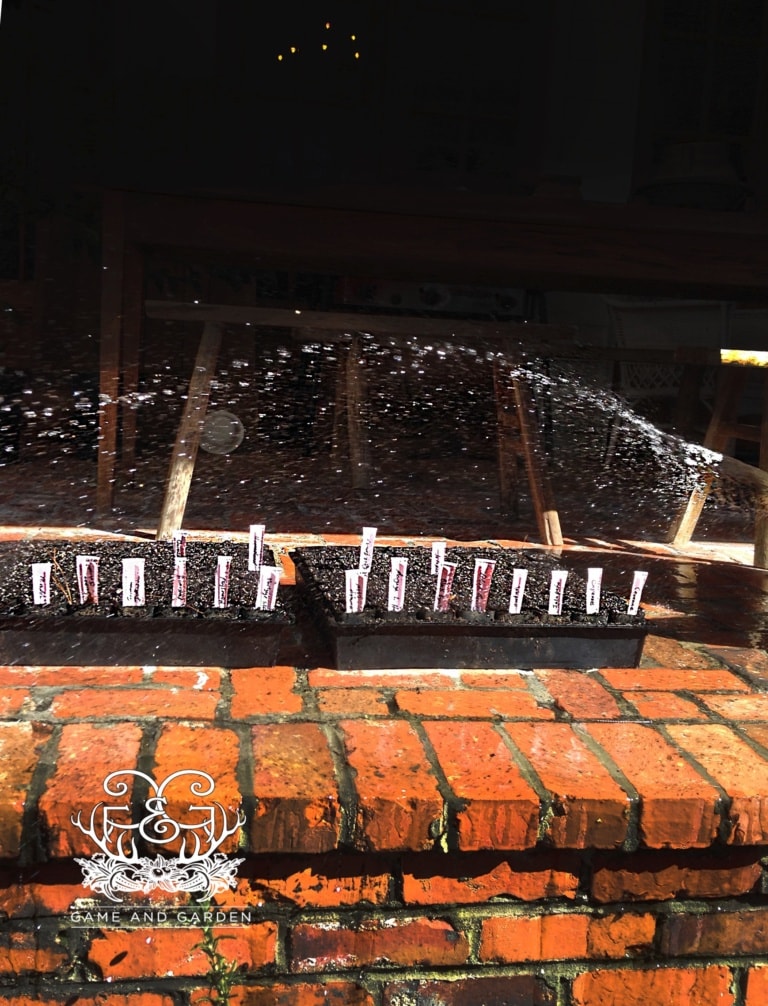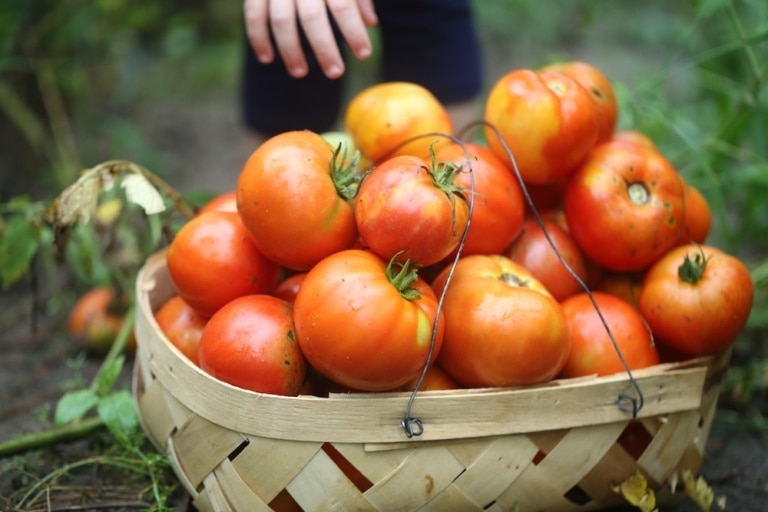How to Use Eggshells in the Garden
This post is about how to use eggshells in the garden to help your plants thrive. There’s no getting around it: every season, preparing and planting our garden is hard work. But one of the easiest things I do that has incredible returns is to use eggshells. We raise chickens and I feed a large family, so we always have a ton of eggshells to crush up for the garden. Click here for my best egg recipes.
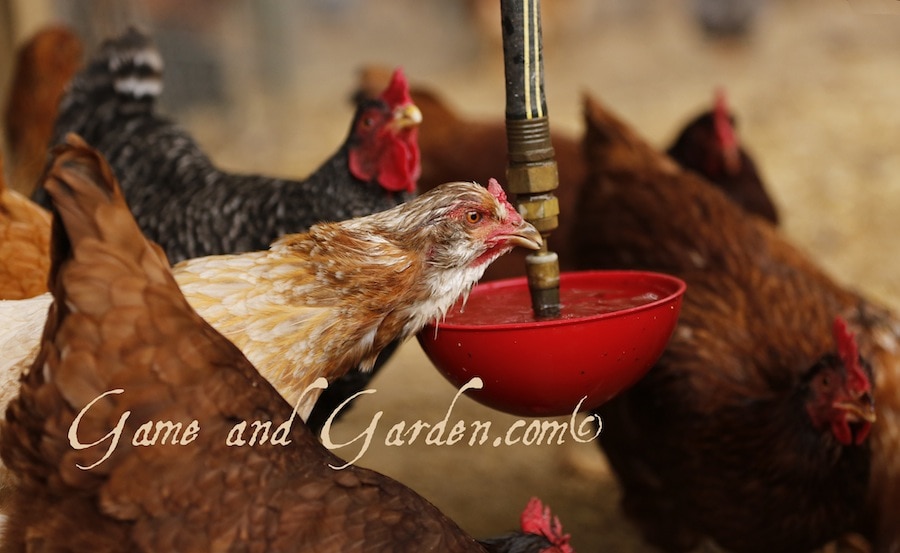
I love the way there’s a use for every part of the egg that my chickens so graciously provide. It’s marvelous how chickens actually help produce more nutrient filled vegetables for themselves — from our kitchen trash! I feed them the scraps and remnants of our garden vegetables, and in turn, they provide me with nutritious and delicious eggs. Then their shells nourish the soil to grow more veggies.
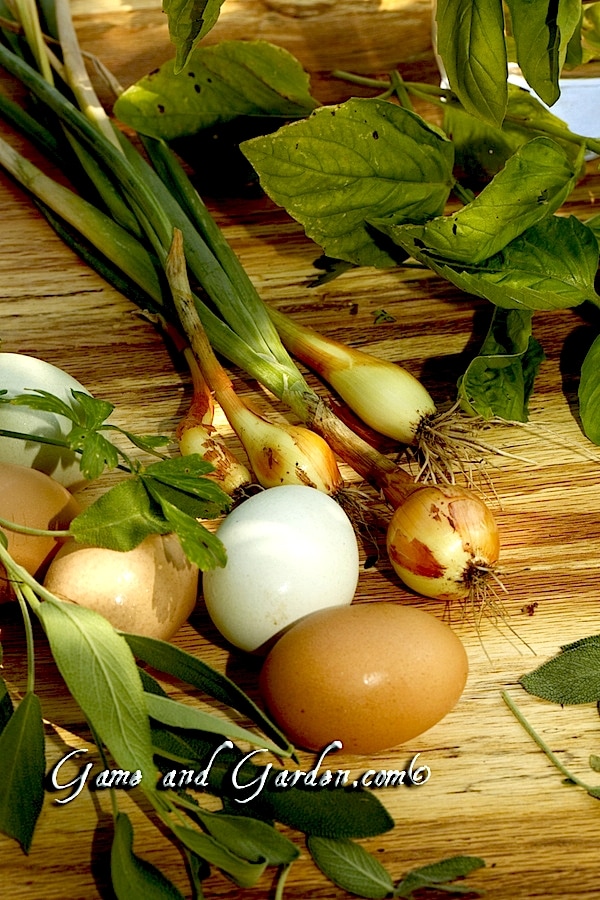
Ways That Ground Eggshells Are Beneficial in the Garden
Crushed or ground eggshells can boost your garden soil and protect your vegetable plants in several ways.
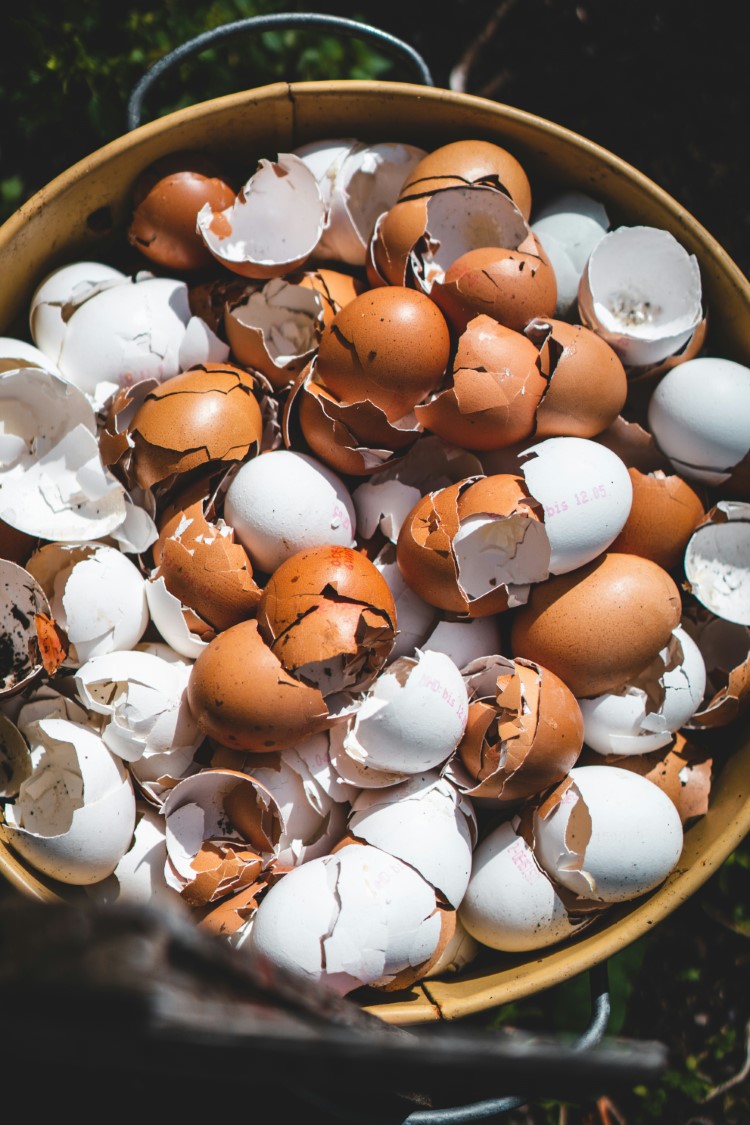
Provide Calcium: Eggshells are primarily composed of calcium carbonate, which is a form of calcium commonly used as a soil amendment to raise soil pH. Calcium is also essential for plant growth and helps strengthen cell walls. It reduces the likelihood of diseases like blossom end rot in tomatoes and peppers, which results from calcium deficiency.
Add Essential Nutrients: In addition to calcium, eggshells contain small amounts of other minerals like phosphorus, magnesium, and potassium. These are also beneficial for plant growth. When eggshells break down in the soil, they release these nutrients gradually, enriching the soil and providing a slow-release fertilizer for your plants.
Improve Soil Structure: Crushed eggshells can help improve soil structure by adding texture and increasing aeration. When incorporated into the soil, the eggshells create small air pockets that improve drainage and allow roots to access oxygen more easily.
Deter Pests: Eggshells are also a big help for pest control. The sharp edges of crushed egg shells can deter certain pests, such as slugs and snails, from crawling over them. Sprinkling crushed eggshells around vulnerable plants can create a barrier that discourages these pests from damaging your garden.

Hinder Weed Growth: A mulch layer of finely crushed eggshells on your garden can help prevent weeds from cropping up.
Which plants like eggshells?
Just about any plant that likes a high pH soil will be a big fan of eggshells. That includes both outdoor and indoor plants.

Eggshell Loving Garden Plants
Outdoor plants that benefit from the calcium in eggshells include:
- Canteloupes
- Eggplants
- Peppers
- Tomatoes
- Spinach, kale, lettuce, and other greens
Eggshell Loving Houseplants
Most indoor plants will grow better with a fine powder of eggshells in the pot. Houseplants that especially like the extra calcium include:
- African violets
- Cactus plants
- Orchids
- Potted ferns
- Spider plants
Which plants don’t like eggshells?
Most plants thrive with the low soil acidity that eggshells help create. However, some plants do better with acidic soil. These include ferns, azaleas, and blueberries. Be sure to check the soil requirements for your plants before fertilizing.
How to Prepare Eggshells for Plants
To utilize eggshells in the garden, you can crush them into small pieces with a mortar and pestle or grind them with a coffee grinder. If you choose to grind the shells, get an inexpensive grinder just for that purpose–one that you don’t use for your coffee. By the way, coffee grounds are another kind of food waste that is great for composting: the nutrients in grounds complement the nutrients of eggshells.

Mix the eggshell grit into the soil or sprinkle it around plants as a natural fertilizer and DIY pest deterrent. It’s essential to crush the eggshells finely to speed up their decomposition process and make the nutrients more readily available to plants.
You can also plant seedlings in potting soil in half an eggshell and plant the entire thing in the garden when the plant is ready. Make sure to rinse, dry, then bake the half shells for 30 minutes at 350°F to kill any bacteria.
NOTE: If you are concerned about salmonella contamination from eggshells in the garden, you can also put the shells into a compost bin. Composting creates enough heat to kill the bacteria.


